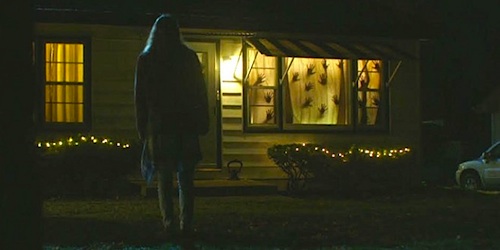
By Joe Bendel. His name is Sun Wukong. He is better known as the Monkey King and he means business. Unfortunately, nobody else does. When he loses his powers through a wacky chain of events and his loser companions are magically trapped, Stone Ox village will have to rely on the over-confident but underachieving Wang Dachui, who always finds ways to misuse the thimble full of magical powers he possesses. Journey to the West takes a detour through Zucker Brothers territory in Surprise, which is now playing in New York.
Technically, Stone Ox village already has a mystical protector, but “Mr.” Murong has not been himself lately. The supernaturally imprisoned evil force his descendants swore to maintain watch over has really been giving him the full court temptation press. Wang Dachui, a sort of wuxia analog of the popular Chinese webisode slacker, thinks he is the man, but he is no match for the cat demon looking to plunder the village’s secret weapon. Fortunately, Murong saves his bacon, but the ensuing battle greatly weakens the guardian, leaving Stone Ox vulnerable as a result.
Feeling unappreciated, Wang decides it might be best to get out of Dodge for a while. He temporarily hooks up with the Monkey King, who has been separated from his colleagues: the monk, Tang Seng (a.k.a. Xuanzang), Zhu “Pigsy” Bajie, and Sha “Sandman” Wujing. Sun is now mostly mortal, but he still has considerable anger management issues and a wicked facility with the quarter staff. However, he is no match for the temper of Su Xiaomei, the rice cake vendor, who reluctantly employed Wang as a delivery boy. Nevertheless, the clumsy would-be-hero will return to Stone Ox to save her from the dark whatever it is that is up to no good (frankly, it is never very clear, but it is definitely bad news).
Whether as director, screenwriter, or co-star (appearing as Sandman), Yi is never intimidated by broad, over-the-top humor. This will be “Chinese humor” an audience member warned me before the screening—and she was right. Yi and rubber-faced star Ke Bai have no time for subtlety or sophisticated word play. On the other hand, few comedies can boast so many earth-shaking cataclysms, aside from Stephen Chow & Derek Kwok’s Journey to the West. Funny how that works.
Ke Bai certainly has no reservations when it comes to realizing the humiliations meted out on Wang. He takes a pasting and keeps on preening. As Su, Yang Zishan (recognizable from So Young and 20 Once Again) probably gets biggest, most exportable laughs cutting Wang down to size. Liuxun Zimo also makes a surprisingly credible action figure as the Monkey King. In fact, there are some pretty respectably choreographed action sequences, especially those involving the cat demon.
Although it is a goofball comedy, Surprise brings plenty of cosmic chaos. If there is another special effects spectacular opening this weekend, they have sure kept it quiet, so fantasy buffs really ought to consider checking out the exploits of Wang Dachui and the Monkey King. It has its charms, like watching the Three Stooges running amok through The Lord of the Rings. Recommended for fans of screwball genre films, Surprise is now playing in New York at the AMC Empire.
LFM GRADE: B-
Posted on December 23rd, 2015 at 11:08am.






